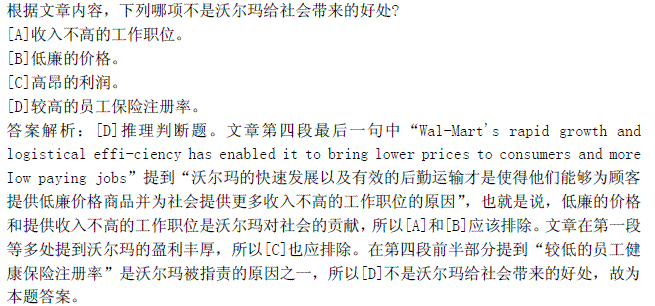请阅读短文,完成此题。
It is frequently assumed that the mechanization of work has a revolutionary effect on the livesof the people who operate the new machines and on the society into which the machines have beenintroduced. For example, it has been suggested that the employment of women in industry takethem out of the. household, their traditional sphere and fundamentally alter their position in society.In the nineteenth century, when women began to enter factories, Jules Simon, a French politician,warned that by doing so, women would give up their femininity. Fredrich Engels, however,predicted that women would be liberated from the"social, legal, and economic subordination" ofthe family by technological developments that made possible the recruitment of "the whole femalesex .., into public industry." Observers thus differed concerning the social desirability ofmechanization's effects, but thev agreed that it would trmsiorm women's lives.
Historians, particularly thnse investigating the history of women, now seriously question thisassumption of transforming power. They conclude that such dramatic technological innovations asthe spinning jenny, the sewing tnachine, the typewriter, and the vacuum cleaner have not resultedin equally dramatic social changes in women's economic position or in the prevailing evaluation ofwomen's work. The employment of young women in textile mills during the Industrial Revolutionwas largely and extension of an older pattern of employment for young, single women as domestics.It was not the change in office technology, but rather the separation of secretarial work, previouslyseen as an apprenticeship for beginning managers, from administrative work that in the 1880'screated a new class of "dead end" jobs, thenceforth considered "women's work". The increase inthe numbers of married women enployed outside the home in the twentieth century, had less to dowith the mechanization of housework and an increase in leisure time for these women than it didwith their own economic necessity and with high marriage rates that shrank the available pool ofsingle women worke, previously, in many cases, the only women employers would hire.
Women's work has changed considerably in the past 200 years, moving from the household tothe ofiice or the factory, and later becoming mostly white-collar instead of blue-collar work. Fundamentally, however, the conditions under which women work have changed little since the Industrial Revolution: the segregation of occupatious by gender, lower pay for women as a group,jobs that require relatively low levels of skill and offer women little opportunity for advancement all persist, while women's household labour remains demanding. Recent historical investigation has led to a major revision of the notion that lec.hnology is always inherently revolutionary in its effectson society. Mechanization may even have slowed any change in the traditional position of womeu both in the labour market and in the home.
What is the main idea of the first paragraph?
查看材料
A.The mechanization of work has a revolutionary eftct.
B.The social mechanization would "aftct women's lives.
C.The social status of women has changed.
D.Observers have different ideas about the effect of social mechanizatiou.

